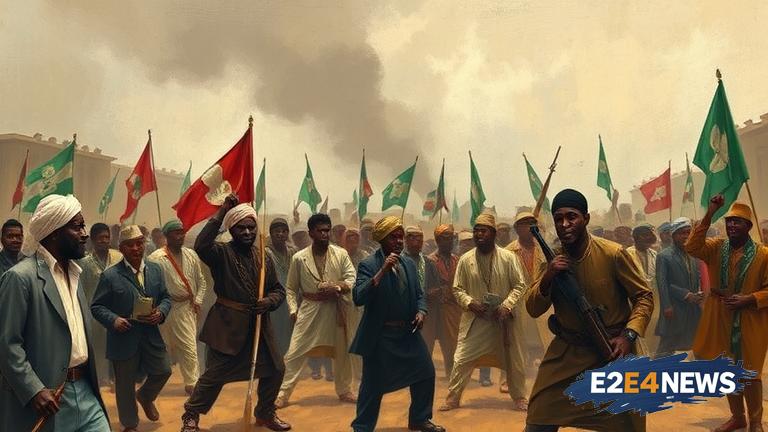The Nigerian Civil War, which lasted from 1967 to 1970, was a devastating conflict that resulted in the loss of millions of lives and widespread destruction. However, according to a Nigerian lawyer, Ifeanyi, the war never truly ended because the Igbo people are still marginalized in the country. Ifeanyi made this statement in a recent interview, where he expressed his concerns about the ongoing struggles of the Igbo people. He argued that the marginalization of the Igbo is a clear indication that the civil war is still ongoing, albeit in a different form. The lawyer pointed out that the Igbo people have been denied access to key positions of power and have been excluded from major economic opportunities. He also noted that the region has been neglected in terms of infrastructure development, leading to a significant disparity in living standards. Ifeanyi emphasized that the marginalization of the Igbo is not only a moral issue but also a constitutional one, as it violates the principles of equality and fairness enshrined in the Nigerian constitution. He called on the government to take immediate action to address the grievances of the Igbo people and to work towards a more inclusive and equitable society. The lawyer’s statement has sparked a heated debate in Nigeria, with some people agreeing with his views and others disagreeing. Some have argued that the Igbo people have made significant progress since the end of the civil war and that their marginalization is not as widespread as Ifeanyi claims. However, others have pointed out that the Igbo people still face significant challenges, including limited access to education and employment opportunities. The issue of Igbo marginalization is a complex and sensitive one, and it requires a nuanced and multifaceted approach to resolve. The Nigerian government has a critical role to play in addressing the grievances of the Igbo people and in promoting a more inclusive and equitable society. This can be achieved through policies and programs that promote economic development, improve access to education and employment opportunities, and address the historical injustices faced by the Igbo people. Furthermore, it is essential to recognize the historical context of the Nigerian Civil War and its ongoing impact on the Igbo people. The war was fought over issues of regional autonomy, economic inequality, and cultural differences, and these issues still persist today. The Igbo people have a rich cultural heritage and have made significant contributions to Nigerian society, and it is essential to recognize and celebrate their achievements. In addition, it is crucial to address the psychological trauma and emotional pain caused by the civil war and its ongoing legacy. This can be achieved through initiatives that promote healing, reconciliation, and forgiveness. The international community also has a role to play in promoting peace and stability in Nigeria and in supporting the government’s efforts to address the grievances of the Igbo people. This can be achieved through diplomatic efforts, economic support, and humanitarian assistance. In conclusion, the issue of Igbo marginalization in Nigeria is a complex and sensitive one that requires a nuanced and multifaceted approach to resolve. The Nigerian government, the international community, and civil society organizations must work together to promote a more inclusive and equitable society and to address the historical injustices faced by the Igbo people. The ongoing legacy of the Nigerian Civil War is a reminder that the struggle for peace, justice, and equality is ongoing, and it requires the collective efforts of all stakeholders to achieve a more just and equitable society. The lawyer’s statement has highlighted the need for a national conversation about the ongoing impact of the civil war and the marginalization of the Igbo people. It is essential to create a platform for dialogue and discussion, where all stakeholders can come together to share their experiences, concerns, and ideas for promoting a more inclusive and equitable society. This can be achieved through town hall meetings, community forums, and social media platforms. Ultimately, the resolution of the Igbo marginalization issue requires a commitment to justice, equality, and human rights. It requires a willingness to listen to the concerns of the Igbo people, to acknowledge their experiences, and to work towards a more inclusive and equitable society. The Nigerian government, the international community, and civil society organizations must work together to promote a culture of tolerance, respect, and understanding, and to address the historical injustices faced by the Igbo people.





